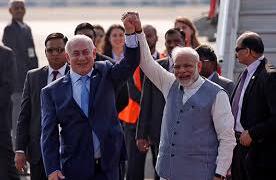Venezuela’s undergoing economic crisis has been taken to the streets by its hungry citizens. The nation is being torn apart by food shortages, with a large percentage of the population going without three meals a day. Experts are already fearing for the health of future generations that are growing up in times where the prices for mere essentials such as meat and milk have erupted and turned them into luxuries.
Poverty rates, which were under 50% only a couple of years ago and were set to decrease further with increasing oil wealth, have now skyrocketed to 80%, while crime is being committed in the absence of military and police personnel, most of whom are regularly deployed to deal with protests, hundreds of which have occurred in 2016 alone.
The problems are in part due to the fact that oil accounts for nearly 95% of Venezuela’s exports and the global crash in oil prices devastated the economy, but despite the nation sitting atop the world’s largest oil reserves, historically poor economic management and overreliance on oil have brought the nation to its knees.
In 1999, Hugo Chavez took the President’s office with one goal in mind – eradicating poverty, or at least helping those suffering from it.
Resurgent oil prices in the late 90’s enabled the government to spend freely on subsidies for its citizens without much thought, as it seemed that the demand for oil wasn’t going to dwindle anytime soon.
Thus, Chavez looked to lower prices by setting them himself, a phenomenon termed “artificial pricing”. This meant that all products would be available at cheap prices and would be safeguarded from fluctuating inflation. Hence, food became extremely cheap and affordable to even the poorest. Chavez gained the support of millions for this move, but destroyed the livelihoods of many too.
Although the prices for products remained the same, production costs rose through the years and eliminated the prospect of making profits. At some point, the cost of manufacturing or producing some goods and products was higher than their selling price in the domestic market. For example, even staple Venezuelan agricultural crops like corn and rice stagnated in terms of produce, for farmers couldn’t take the losses, and Venezuela had to import them.
Slowly, each indigenous industry crippled, while domestic food production became almost non-existent. Soon, Venezuela was importing all of its food from foreign nations, with government expenditure reaching billions. The lack of materials and ingredients has resulted in global brands such as Coca Cola halting production due to there being no sugar.
Now though, the state doesn’t have enough cash to import enough food for its thirty million citizens, the reason why Venezuelans are going hungry. Everyday, organized raids are conducted on supermarkets and restaurants by the population to feed themselves, though even those places are struggling to bring more food in. Last week, a group of protestors chased the President down the streets while banging their pots, demanding to be fed.
In Chavez’s time, the citizens who couldn’t even afford the already cheap food had it subsidized for them by the government, while another host of social services were introduced to capitalize on the influx of oil wealth.
If the current regime is to replicate this, cash needs to flow into the country. The obvious solution would be to utilize the enormous reserves and ramp up oil production, but Chavez’s policies even eliminated that possibility. During his 14 year reign, Chavez objected to all foreign advances in the nation, even through the means of business, and oil was at the top of that list.
After the Venezuelan oil extraction industry was nationalized in 1976, a company was formed by the government, which was named Petroleos de Venezuela, S.A or PDVSA.
The company was renowned throughout the world in the 90’s and despite being a state run organization, it remained relatively autonomous. Seasoned staff members of the PDVSA embodied the vision it was created with, to extract all the oil that the nation had to offer. Foreign oil companies could certainly help with this task and the PDVSA was more than open to them lending a hand.
But, Chavez increased the amount of royalty that the PDVSA paid to the government significantly, routing multiple companies in partnership out of Venezuela. Then, he proceeded to dismantle the PDVSA’s mission. Chavez met with top OPEC nations in a bid to convince each member that oil production should be reduced, a move which would raise the global oil prices.
The workers and supporters of the PDVSA were opposed to the move from day one, but no action would be taken until a huge storm was birthed by the political opposition.
One of Chavez’s dreams was to help formulate an entirely new constitution, which would come true in 1999. Under it, the traditional bicameral legislature would be dissolved and transform into a unicameral version, which granted Chavez more power. Initially, the population supported this move, but an increased amount of trade being conducted between Cuba and Venezuela, and Chavez’s constant meetings with Cuban political elite led people to believe that he was trying to emulate Fidel Castro, and perhaps, turn himself into a dictator. The media jumped to cover the story and many television stations were against Chavez, which resulted in biased news coverage. These factors, combined with the mistreatment suffered by PDVSA, resulted in a failed coup attempt in 2002.
Chavez had been a military officer prior to entering politics, while he himself had led an attempt to overthrow the government in 1992. This meant that he commanded respect in the army, and his loyalists thrashed the coup.
Immediately, the opposition garnered all the support it could, including many workers of the PDVSA, and declared a national strike that lasted from late 2002 to early 2003. The strike froze oil production, export revenue halted, and media coverage portrayed Chavez in the worst light it could. But the strike never gained momentum or steam in other areas of society, and Chavez always had the support of the poor. In the coming months, lower paid PDVSA workers would return to their jobs and smaller business owners refused to take the sustained losses, reopening their businesses. On January 23, 2003, a rally would take place in support of Chavez that had almost as many protestors as the anti-Chavez rally that took place during the coup and attracted almost a million protestors.
Chavez fired about half the PDVSA’s employees as the dust settled and replaced them with workers who lacked skills to cope with the work environment and were inept, but were loyal to him and his regime. Those already employed were given the option of pledging their loyalty or losing their jobs. Thus, the organization was not only further integrated into the government using loyal employees, but also lacked maintenance, safety equipment, and produced a lower amount of oil, just as Chavez had hoped.
These factors harmed the PDVSA’s ability to extract oil in the long run and today, that’s exactly what’s happening. Venezuela has been notorious in recent years for producing heavy oil, a type that has naturally higher density. To sell heavy oil at a decent price, it has to be refined, but the PDVSA doesn’t have to infrastructure necessary. Hence, the government has to spend more money to get it refined in foreign nations, although that can’t be sustained in the current economic crisis. If these problems had been solved in the past, Venezuela wouldn’t be only the fifth largest oil producer in the world, despite being the number one in terms of reserves.
Also, Chavez’s policies that deprived Venezuela of foreign investment still remain intact. For example, he controlled the exchange rate of the Venezuelan currency the same way that he did for product pricing, by setting a fixed rate to prevent the bolivar from fluctuating. This made it harder for companies to seek foreign investment, but there were a few exceptions.
The companies that pledged its loyalty to Chavez and his regime would receive currency at real world exchange rates and were even readily provided with US dollars if necessary. Most of these companies weren’t foreign and made an exit from the nation due to it being harder to send profits back home. Further, Venezuela actually has three separate exchange rates and companies are left eternally confused about which currency they should value themselves and their assets in.
This has not been changed because inflation has already torn past 1000% and exposing the bolivar to real world exchange rates and inflation would devalue it beyond belief. The bolivar remaining relatively valuable makes it cheaper for Venezuela to import goods and this measure being removed could result in no imports coming in at all.
But Venezuela’s foreign reserves and dollars are dwindling, which has led many companies to expect the worst and exit the nation altogether. Aside from Coca-Cola, major brands like Kimberly-Clark, airline giant Lufthansa, tire manufacturer Bridgestone, and Citi Bank have all packed their bags.
Perhaps the only way to go about things that remains is to request for monetary loans. The IMF would be a prime candidate, while trade partners such as Cuba and China could come to the rescue. The Venezuelan population has been showing its displeasure with China, who had been investing heavily into the oil rich nation for the past few years, but hasn’t offered any aid in these testing times. Various Chinese restaurants have been vandalized in shows of protest, while the lawlessness has inspired bigots to freely oppose and funnel their anger regarding the economy on those who don’t happen to be of Spanish descent.
Cash at the hands of the government would allow it to import in bulk again, subsidize food for the poor, feed the population, and restart the oil machinery. If Venezuela manages to crawl out of its grave, things have to then be set right. Oil production needs to be brought on par with those in the middle-east, while the government has to invest heavily in other indigenous industries and diversify the country’s economy to prevent price fluctuations devastating Venezuela.
Venezuelans too are at fault for having seen multiple times in the nation’s history when the economy got affected by oil prices, but failing to raise their voices in protest during Chavez’s reign just because they were receiving items at cheaper prices.
The responsibility to bring the nation back to its feet lies in the hands of Hugo Chavez’s successor, President Nicolas Maduro, a man who has done everything possible to present himself as the reincarnation of his predecessor. Yet, an ability he lacks, and sorely needs in this crisis, is one which Chavez had expertise in – diverting the population’s attention away from issues of importance. But, Maduro has not the charisma or charm that catapulted Chavez to become an idol in the eyes of the downtrodden and poor.
Even if the government pulls of an economic miracle and fixes the economy, Maduro may not remain Venezuela’s President, for the road to normality will need attention given to a currency that is ensured to derail, an oil industry plagued by inefficiency, and a market deprived of foreign investment, and will take a long time. Voters might not be able to bare a head of state not acting quick enough and the mood may dictate their decisions.
Venezuela’s crisis has become a humanitarian one at this point, and the only things that will save it are international aid and a strong leader at the helm of the nation, one which can finally realize the nation’s limitless potential.

























